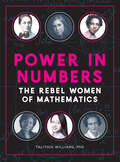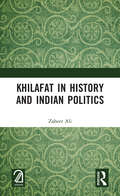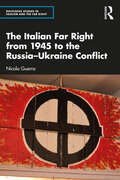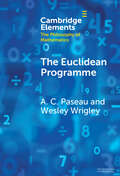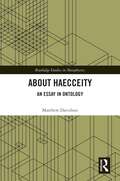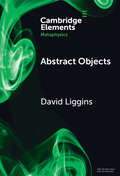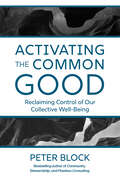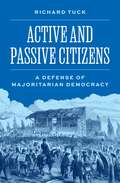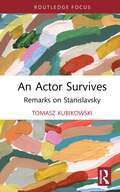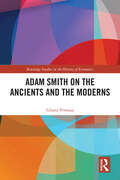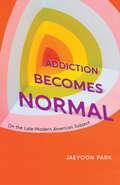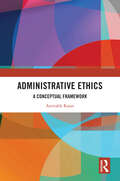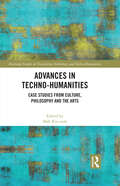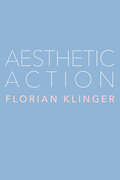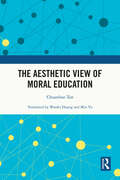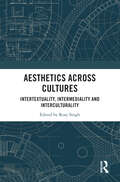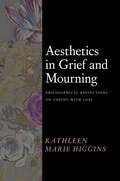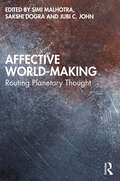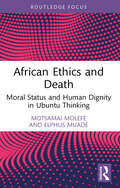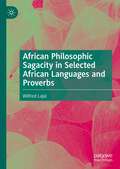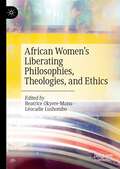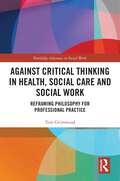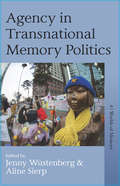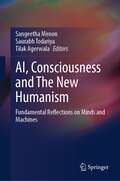- Table View
- List View
Power in Numbers: The Rebel Women of Mathematics
by Talithia WilliamsFrom rocket scientists to code breakers, “fascinating stories” of women who overcame obstacles, shattered stereotypes, and pursued their passion for math (Notices of the American Mathematical Society).With more than 200 photos and original interviews with several of the amazing women covered, Power in Numbers: The Rebel Women of Mathematics is a full-color volume that puts a spotlight on the influence of women on the development of mathematics over the last two millennia. Each biography reveals the life of a different female mathematician, from her childhood and early influences to the challenges she faced and the great achievements she made in spite of them. Learn how:After her father terminated her math lessons, Sofia Kovalevskaya snuck algebra books into her bed to read at nightEmmy Noether became an invaluable resource to Albert Einstein while she was in the NavyNative American rocket scientist Mary Golda Ross developed designs for fighter jets and missiles in a top-secret unitKatherine Johnson’s life-or-death calculations at NASA meant that astronauts such as Alan Shepard and John Glenn made it home aliveShakuntala Devi multiplied massive numbers in her head so her family could eat at nightPamela Harris proved her school counselors wrong when they told her she would only succeed as a bilinguial secretaryCarla Cotwright-Williams began her life in the dangerous streets of South-Central Los Angeles before skyrocketing to a powerful career with the Department of Defense in Washington, DCThese women are a diverse group, but their stories have one thing in common: At some point on their journeys, someone believed in them—and made them think the impossible was perhaps not so impossible.“A quick read . . . full of dramatic stories and eye-catching illustrations.” —MAA Reviews“I found myself marveling at the personal anecdotes and quotes throughout the book.” —Notices of the American Mathematical Society
Khilafat in History and Indian Politics
by Zaheer AliThis book is a brief historical account of Khilafat, an Islamic political institution mired in controversies from its inception. It is an attempt to present an objective critique of the Islamic polity that, in a way, was primarily responsible for crafting schisms in Islam with its commencement. By the time the last Khilafat of the Ottomans came to an end in the aftershock of the Second World War, the Muslim political elite in India launched a movement for the restoration and continuation of the Ottoman Khilafat. The most paradoxical dimension of the issue was that in the Arab peninsula, the epicenter of Islam, the people were struggling to cast away the yoke of the Ottoman Khilafat, then why were the Indian Muslims emotionally involved in a movement that was vehemently condemned and assailed by a majority of Muslims outside the Indian subcontinent? This title is co-published with Aakar Books. Print editions not for sale in South Asia (India, Sri Lanka, Nepal, Bangladesh, Pakistan and Bhutan)
The Italian Far Right from 1945 to the Russia-Ukraine Conflict (Routledge Studies in Fascism and the Far Right)
by Nicola GuerraThe Italian Far Right from 1945 to the Russia–Ukraine Conflict provides a comprehensive account of the postwar parliamentary and extra parliamentary far right in Italy. This book explores the ideology, movements and activism of the extreme right and neo- fascists. The recent victory in the Italian parliamentary elections of the ‘postfascist’ party Fratelli d’Italia and its leader Giorgia Meloni highlights the importance of such research. The book examines why some of these movements participated with CIA- backing in the ‘Strategy of Tension’ in the years of the Cold War where terrorist actions aimed to keep Italy in NATO and prevent the Communist Party from coming to power, while other extreme- right groups vehemently opposed this and what they considered the dangerous ‘Americanization’ of the country. It debunks the myth that there was a unified postwar fascist movement in Italy, but instead excavates the complex battles within the extreme right as well as with their opponents from the left, and the authorities. This study is necessary to clarify the history and ideological dynamics of a political area still too often shrouded in mystery and whose geopolitical role is still poorly understood and generally underestimated. The analysis is contextualized in the present day by looking at the different perspectives of the Italian far right on the Russian invasion of Ukraine. The book will be of interest to researchers of political history, the Cold War and Italian history and politics.
The Euclidean Programme (Elements in the Philosophy of Mathematics)
by null A. C. Paseau null Wesley WrigleyThe Euclidean Programme embodies a traditional sort of epistemological foundationalism, according to which knowledge – especially mathematical knowledge – is obtained by deduction from self-evident axioms or first principles. Epistemologists have examined foundationalism extensively, but neglected its historically dominant Euclidean form. By contrast, this book offers a detailed examination of Euclidean foundationalism, which, following Lakatos, the authors call the Euclidean Programme. The book rationally reconstructs the programme's key principles, showing it to be an epistemological interpretation of the axiomatic method. It then compares the reconstructed programme with select historical sources: Euclid's Elements, Aristotle's Posterior Analytics, Descartes's Discourse on Method, Pascal's On the Geometric Mind and a twentieth-century account of axiomatisation. The second half of the book philosophically assesses the programme, exploring whether various areas of contemporary mathematics conform to it. The book concludes by outlining a replacement for the Euclidean Programme.
About Haecceity: An Essay in Ontology (Routledge Studies in Metaphysics)
by Matthew DavidsonThis book offers an in-depth and updated examination of the nature of haecceity—that primitive entity which explains why something is distinct from other things.The book begins by exploring different conceptions of haecceity throughout history. The discussion of various figures across history is important for getting clear on the nature of haecceity and its role in individuation. The next part of the book examines different views about the nature of haecceity. The author defends a view on which haecceities have objects that instantiate them as constituents. Following that, the book considers arguments for and against the existence of haecceities, the epistemology of haecceity, and the distinction between qualitative and non-qualitative properties.About Haecceity will appeal to scholars and advanced students working in metaphysics, philosophy of language, epistemology, logic, and history of philosophy.
Abstract Objects (Elements in Metaphysics)
by null David LigginsPhilosophers often debate the existence of such things as numbers and propositions, and say that if these objects exist, they are abstract. But what does it mean to call something 'abstract'? And do we have good reason to believe in the existence of abstract objects? This Element addresses those questions, putting newcomers to these debates in a position to understand what they concern and what are the most influential considerations at work in this area of metaphysics. It also provides advice on which lines of discussion promise to be the most fruitful.
Activating the Common Good: Reclaiming Control of Our Collective Well-Being
by Peter BlockA powerful, inspiring, and achievable vision of a society based on cooperation and community instead of competition and commodification.This book counters the dominant and destructive story that we are polarized, violent, selfish, and destined to consume everything in sight. That is not who we are. The challenge, Peter Block says, is that we are suffering under an economic theology that is based on scarcity, self-interest, competition, and infinite growth. We're told we can purchase and outsource all that matters. Block calls this the business perspective narrative. It dominates not only the economy but also architecture, faith communities, journalism, arts, neighborhoods, and much more. Block offers an antidote: the common good narrative. It embodies the belief that we are basically communal and cooperative. And that we have the capacity to communally produce what we care most about: raising a child, safety, livelihood, health, and a clean and sustainable environment. This book describes how shifts to the common good perspective could transform many areas, fostering journalism that reports on what works, architecture that designs habitable spaces creating connection, faith collectives that build community, a market that is restrained and local, and leadership and activism that build social capital by creating trust among citizens. With these shifts, we would fundamentally change the world we live in for the better.
Active and Passive Citizens: A Defense of Majoritarian Democracy (The University Center for Human Values Series #56)
by Richard TuckA powerful case for why majority rule—not representation—is the defining feature of democratic politicsThe idea that democratic governance rests on active self-rule by citizens plays surprisingly little part in current theories of democracy, which instead stress the importance of representation by elected, appointed, or randomly selected bodies such as legislatures, courts, and juries. This would have astonished eighteenth-century theorists of democracy, who viewed universal suffrage and majoritarian voting as the sole criteria for democratic politics. Active and Passive Citizens defends the view of these earlier thinkers, asserting that individual agency is the very essence of democracy.In this provocative and lucidly argued book, Richard Tuck draws on the distinction made by the Abbé Sieyès, a leading political theorist of the French Revolution, between &“active&” citizens (the electorate) and &“passive&” ones (those who are represented by the institutions of the state). Tuck traces our current representative view of democracy to Sieyès and contrasts him with Rousseau, a theorist of active self-rule by the people. Tuck argues that modern theories of democracy have effectively turned us into passive citizens and calls for a renewal of a majoritarian democracy that realizes the full potential of active citizenship.Based on the prestigious Tanner Lectures delivered at Princeton University&’s Center for Human Values, Active and Passive Citizens is edited and introduced by Stephen Macedo and includes commentary by political theorists Simone Chambers, Joshua Cohen, John Ferejohn, and Melissa Schwartzberg.
An Actor Survives: Remarks on Stanislavsky (Routledge Advances in Theatre & Performance Studies)
by Tomasz KubikowskiThis book focuses on the analysis and interpretation of the first volume of the book An Actor’s Work by Konstantin Stanislavsky. This volume is the only part of his planned major work on theatre art that he was able to finish and authorise before his death. Its highly edited variant has long been known as ‘An Actor Prepares’ in the English-speaking world. Tomasz Kubikowski explores Stanislavsky’s material not only as a handbook of acting but also as a philosophical testament of Stanislavsky, in which he attempts to contain his most essential experiences and reflections. This book explores the underlying theme of ‘survival’ in its various meanings, from professional to existential; and the mechanisms and actions we attempt to survive. This study will be of great interest to students and scholars in theatre and performance studies.
Adam Smith on the Ancients and the Moderns (Routledge Studies in the History of Economics)
by Gloria VivenzaThe classics heavily influenced many aspects of European modern culture, yet it is not easy to trace their intellectual power on any author. In this volume, Gloria Vivenza takes on the impressive task of examining how philosophy, history, literature, politics, and ethics all played a part in shaping Adam Smith’s thought as a scholar, philosopher, and economist.This book will be of interest to advanced students and researchers in the history of economic thought, the history of philosophy, moral philosophy, political theory, and the Enlightenment.
Addiction Becomes Normal: On the Late-Modern American Subject
by Jaeyoon ParkAddiction is now seen as an ordinary feature of human nature, an idea that introduces new doubts about the meaning of our desires. Over the last forty years, a variety of developments in American science, politics, and culture have reimagined addiction in their own ways, but they share an important understanding: increasingly, addiction is described as normal, the natural result of a body that has been exposed to potent stimuli. This shift in thinking suggests that addiction is a condition latent in all of us, a common response to a society rich in thrills. In Addiction Becomes Normal, Jaeyoon Park provides a history and critical analysis of the normalization of addiction in late-modern American society. By exploring addiction science, diagnostic manuals, judicial reform, and public health policy, he shows how seeing addiction as normal has flourished in recent decades and is supported throughout cultural life in the United States by the language of wellness, psychotherapy, and more. Building on Michel Foucault’s depiction of the human figure, Park argues that this shift reflects the emergence of a new American subject, one formed by the accretion of experiences. This view of the human subject challenges the idea that our compulsions reflect our characters, wills, or spirits. For if addiction is an extreme but ordinary attachment, and if compulsive consumption resembles healthy behavior, then desire is no longer an expression of the soul so much as the pursuit of a past reward. A perceptive work of recent history and political theory, Addiction Becomes Normal raises new questions about what it means to be human in America today.
Administrative Ethics: A Conceptual Framework
by Amitabh RajanThis insightful book explores the use and application of ethics in contemporary governance and suggests necessary reforms. Following an interdisciplinary approach involving the fields of political science, law, economics, sociology, management, and philosophy, this book analyses their applicability and usefulness in everyday practices in governance, covering its five cardinal virtues—prudence, transparency, discourse, justice, and accountability. Highlighting ethical challenges in aspects of status recognition, oppression, empowerment, social care, public financing, environment protection and others in today’s interconnected world, it delves into the dynamics of administrative power in democracies and showcases how the misuse of power can be controlled through a discourse of ethics in law and governance. The book will be useful to the students, researchers and teachers of public administration, philosophy, political Science, corporate ethics, and governance other related social sciences disciplines. The book will also be an indispensable companion to social activists, advocacy groups, journalists and civil society institutions and public service training institutions.
Advances in Techno-Humanities: Case Studies from Culture, Philosophy and the Arts (Routledge Studies in Translation Technology and Techno-Humanities)
by Mak Kin-WahThis book is a pioneering attempt to explore the relationships between technology and the humanities through case studies and specific contexts in the areas of language, theatre, literature, translation, philosophy, music, home designations, learning environment, and artificial intelligence. Written by scholars and specialists across various fields, the chapters explore the emerging field of techno-humanities. This book examines the development of language and society by means of Big Data, how technology is integrated into the theatres of Hong Kong and the ensuing results of such integration. The authors also highlight how technology is able to analyse, understand, and visualise literary works and to bring drastic changes to translation in the past seven decades. Long-standing philosophical issues are re-examined, linkages between technology and theoretical concepts are illuminated, and the emotional aspects of computational applications are investigated. This book also delves into insightful case studies such as providing suggestions to train novice translators through corpus-assisted translation teaching, analysing patterns of housing names, and discovering a new online method to acknowledge acquisition through authentic learning experiences. Overall, this book serves as a point of departure for us to go deeper into the role of technology in transforming the humanities in this digital age. This is a useful read for students and scholars interested in learning more about the cross section between humanities and technology.
Aesthetic Action
by Florian KlingerIn this new book, Florian Klinger gives readers a basic action-theoretical account of the aesthetic. While normal action fulfills a determinate concept, Klinger argues, aesthetic action performs an indeterminacy by suspending the action's conceptual resolution. Taking as examples work by Tino Sehgal, Kara Walker, Mazen Kerbaj, Marina Abramović, Cy Twombly, and Franz Kafka, the book examines indeterminacy in such instances as a walk that is at once leisurely and purposeful, a sound piece that is at once joyous and mournful and mechanical, or a sculpture that at once draws one in and shuts one out. Because it has irresolution as its point, aesthetic action presents itself as an unsettling of ourselves, our ways, our very sense of who we are. As performers of such action, we don't recognize one another as bearers of a shared human form as we normally would, but find ourselves tasked anew with figuring out what sharing a form would mean. In conversation with philosophers such as Kant, Hegel, Wittgenstein, and Anscombe; political thinkers such as Marx and Lorde; and contemporary interlocutors such as Michael Thompson, Sebastian Rödl, and Thomas Khurana, Klinger's book makes a case for a conception of the human form that systematically includes the aesthetic: an actualization of the form that is indeterminate and nevertheless rational. The book gives the project of Western philosophical aesthetics a long-overdue formulation for our present that aims to do justice to contemporary aesthetic production as it actually exists. It will appeal to those working in philosophy, art, and political thought.
The Aesthetic View of Moral Education
by Chuanbao TanThe Aesthetic View of Moral Education is the result of in-depth interdisciplinary research in education and aesthetic studies. This book advocates the use of aesthetic ideas and methods to transform moral education activities, which are often trapped in a state of forced indoctrination. This book aims to address the problems of moral education in China and share certain commonalities in the exploration of educational theory. The aesthetic view of moral education is a new and practical philosophy of education. The author's theory of moral education as the appreciation of beauty, the creation of beauty, and the theory of the attainment of the ultimate realm of moral education provide an in-depth analysis of the functions of aesthetic education for moral cultivation. The author also offers unique interpretations of the aesthetic transformation of the process of moral education itself and the pursuit of the realm of moral life and education. This book will be essential reading for students and scholars of education and philosophy, East Asian studies, and readers interested in China's cultural traditions.
Aesthetics across Cultures: Intertextuality, Intermediality and Interculturality
by Rosy SinghThis book critically examines the "mutual illuminations" between literature, religion, architecture, films, performative arts, paintings, woodworks, memes and masks cutting across time and space. Architecture is a good example where the eventual success of a project depends on the harmony between physical sciences and aesthetics, design and planning, knowledge of building material, the local climate and awareness of cultural sensibilities. This volume affirms that aesthetics and arts are deeply linked through existential issues of who I am. The chapters in this volume present diverse discursive structures highlighting the in-between spaces between various art forms and mediums, such as: • Architecture, literature and memory • Kafka in SoHo; Kafka and Bernhard • Kirchner’s woodcuts; pictorial and stage representations of E.T.A. Hoffmann • Hesse’s fairy tales; translations of Pañcatantra • Nietzsche, ritual arts and face masks; martyrdom in La chanson de Roland • Goethe and Hafiz; Indian thought in Martin Buber • Rhythms of the "Third" across cultures • Dadaism and contemporary memes This book examines these sublime linkages in a comparative and interdisciplinary way. Engaging and intersectional, this volume will appeal to students and scholars of arts and aesthetics, literature, philosophy, architecture, sociology, translation studies and readers who are interested in cultural, intertextual, intermedial and comparative studies.
Aesthetics in Grief and Mourning: Philosophical Reflections on Coping with Loss
by Kathleen Marie HigginsA philosophical exploration of aesthetic experience during bereavement. In Aesthetics of Grief and Mourning, philosopher Kathleen Marie Higgins reflects on the ways that aesthetics aids people experiencing loss. Some practices related to bereavement, such as funerals, are scripted, but many others are recursive, improvisational, mundane—telling stories, listening to music, and reflecting on art or literature. Higgins shows how these grounding, aesthetic practices can ease the disorienting effects of loss, shedding new light on the importance of aesthetics for personal and communal flourishing.
Affective World-Making: Routing Planetary Thought
by Simi Malhotra Sakshi Dogra Jubi C. JohnThis volume fosters a re-imagination of the planet where it is seen not only as a resource, but also as an entity that must not be excluded from the political imperative of care and kinship. The authors go beyond the normative understanding of space by recognizing the potency of touch, where they look at somatic experiences that invite the intensity of affect. This book questions the dominance of the capitalocene through the existence of social aesthetic and records the affective encounters that facilitate the creation of planetary identity, affinity, and entanglements. With discussions on architecture, poetry, rap music, romantic literature, performance art, digital fashion, Instagram, Netflix shows, YouTube videos, moving image practices, eco-sexual movements, and graphic narratives, the chapters in this volume initiate a conversation on what it means to inhabit the world today. An important contribution, this book will be of interest to students and researchers of environmental humanities, planetary humanities, affect studies, digital humanities, and media studies, besides also being of interest to those studying interdisciplinary critical/cultural theory, Television and film studies, philosophy, and architectural theory.
Affective World-Making: Routing Planetary Thought
by Simi Malhotra Sakshi Dogra Jubi C. JohnThis volume fosters a re-imagination of the planet where it is seen not only as a resource, but also as an entity that must not be excluded from the political imperative of care and kinship. The authors go beyond the normative understanding of space by recognizing the potency of touch, where they look at somatic experiences that invite the intensity of affect.This book questions the dominance of the capitalocene through the existence of social aesthetic and records the affective encounters that facilitate the creation of planetary identity, affinity, and entanglements. With discussions on architecture, poetry, rap music, romantic literature, performance art, digital fashion, Instagram, Netflix shows, YouTube videos, moving image practices, eco-sexual movements, and graphic narratives, the chapters in this volume initiate a conversation on what it means to inhabit the world today.An important contribution, this book will be of interest to students and researchers of environmental humanities, planetary humanities, affect studies, digital humanities, and media studies, besides also being of interest to those studying interdisciplinary critical/cultural theory, Television and film studies, philosophy, and architectural theory.
African Ethics and Death: Moral Status and Human Dignity in Ubuntu Thinking (Routledge Studies in African Philosophy)
by Motsamai Molefe Elphus MuadeThis book analyzes the concepts of moral status and human dignity in African philosophy and applies them to the moral problems associated with death. The book first challenges the criticism and rejection of moral status in African philosophy and then continues to consider how moral personhood is defined in African ethical theories, investigating which entities have full moral status or moral personhood and are therefore worthy of full ethical consideration. It then applies this theory to the problems associated with death. In the medical context, will an African theory of moral status permit or forbid euthanasia? Do we have moral obligations towards dead human bodies? Overall, the book provides an important African axiological contribution to debates on global ethics and moral philosophy. Providing an important overview of the ethical problems associated with the biological fact of death, this book will be of interest to researchers across the fields of philosophy and African studies.
African Philosophic Sagacity in Selected African Languages and Proverbs
by Wilfred LajulThis book explores African philosophic sagacity, or wisdom philosophy, as proposed by Odera Oruka in his “Four Trends in Current African Philosophy” (1981), which he later expanded to six trends (1998). Oruka defines philosophic sagacity as wisdom philosophy, or philosophy of the wise men of Africa who are independent, liberal and non-conformist thinkers, and who often deviate from the accepted common norms of their societies. This book takes philosophic sagacity discourse beyond Oruka’s definition by encompassing traditional wise sayings and proverbs. It combines individual liberal thinkers and the communal ideas, and cherishes both rational and emotional engagement, offering a broader understanding of African philosophic sagacity. Wilfred Lajul opens the door for new researchers to venture into the study of African languages, wisdom sayings, and proverbs, and helps to unveil the content of this philosophy from the perspective of different African societies.
African Women’s Liberating Philosophies, Theologies, and Ethics
by Beatrice Okyere-Manu Léocadie LushomboThis volume explores the ethical and philosophical paradigms presented by most of the influential Matriarchs of the Circle of African Women Theologians. It critically evaluates the effectiveness of their ethical and philosophical theories, models, and frameworks in pursuing justice and liberation for women in Africa and globally. The authors address critical questions: How have African women theologians reimagined existing ethical paradigms? What original ethical and philosophical ideas have they generated? How have their ethical frameworks influenced the theologies and interpretations they have developed? What purposes do their ethical and philosophical paradigms serve? How do these renderings intersect with various social categories, including gender, race, class, sexuality, capitalism, and colonialism? What liberating frameworks do they propose? The volume further explores the dialogue between distinct African contexts and universal experiences and values. It explores how universal themes such as humanity, human dignity, rights, justice, motherhood, and more can coexist with communal African concepts and themes. It contemplates how embracing African approaches engages these themes more globally, bringing together particular African contexts of women and the universal ethical, philosophical, and theological theories, models, and frameworks to advance the cause of justice and liberation for African women and women worldwide into the future.
Against Critical Thinking in Health, Social Care and Social Work: Reframing Philosophy for Professional Practice (Routledge Advances in Social Work)
by Tom GrimwoodThis book stages a provocative dialogue between social work, health and social care and contemporary philosophy in order to inform theory and practice in a complex and challenging world. Today, the social world is marked by deep-rooted complexities, tensions and challenges. Health workers and social workers are constantly reminded to employ critical thinking to navigate this world through their practice. But given how many of these challenges pose significant problems for the theories that these subjects have traditionally drawn upon, should we now be critical of critical thinking – its assumptions, its basis, and its aspirations – itself? Arguing that health and social work theory must reconsider its deep-rooted assumptions about criticality in order to navigate complex neoliberalism, post-truth, and the relationship between language and late capitalism, it examines how the fusion of theory and practice can re-imagine critical thinking for health and social work in social work. It will be of interest to all scholars, students and professionals of social work and health and social care.
Agency in Transnational Memory Politics (Worlds of Memory #4)
by Jenny Wüstenberg and Aline SierpThe dynamics of transnational memory play a central role in modern politics, from postsocialist efforts at transitional justice to the global legacies of colonialism. Yet, the relatively young subfield of transnational memory studies remains underdeveloped and fractured across numerous disciplines, even as nascent, boundary-crossing theories on topics such as multi-vocal, traveling, or entangled remembrance suggest new ways of negotiating difficult political questions. This volume brings together theoretical and practical considerations to provide transnational memory scholars with an interdisciplinary investigation into agency—the “who” and the “how” of cross-border commemoration that motivates activists and fascinates observers.
AI, Consciousness and The New Humanism: Fundamental Reflections on Minds and Machines
by Sangeetha Menon Saurabh Todariya Tilak AgerwalaThis edited volume presents perspectives from computer science, information theory, neuroscience and brain imaging, aesthetics, social sciences, psychiatry, and philosophy to answer frontier questions related to artificial intelligence and human experience. Can a machine think, believe, aspire and be purposeful as a human? What is the place in the machine world for hope, meaning and transformative enlightenment that inspires human existence? How, or are, the minds of machines different from that of humans and other species? These questions are responded to along with questions in the intersection of health, intelligence and the brain. It highlights the place of consciousness by attempting to respond to questions with the help of fundamental reflections on human existence, its life-purposes and machine intelligence. The volume is a must-read for interdisciplinary and multidisciplinary researchers in humanities and social sciences and philosophy of science who wish to understand the future of AI and society.
